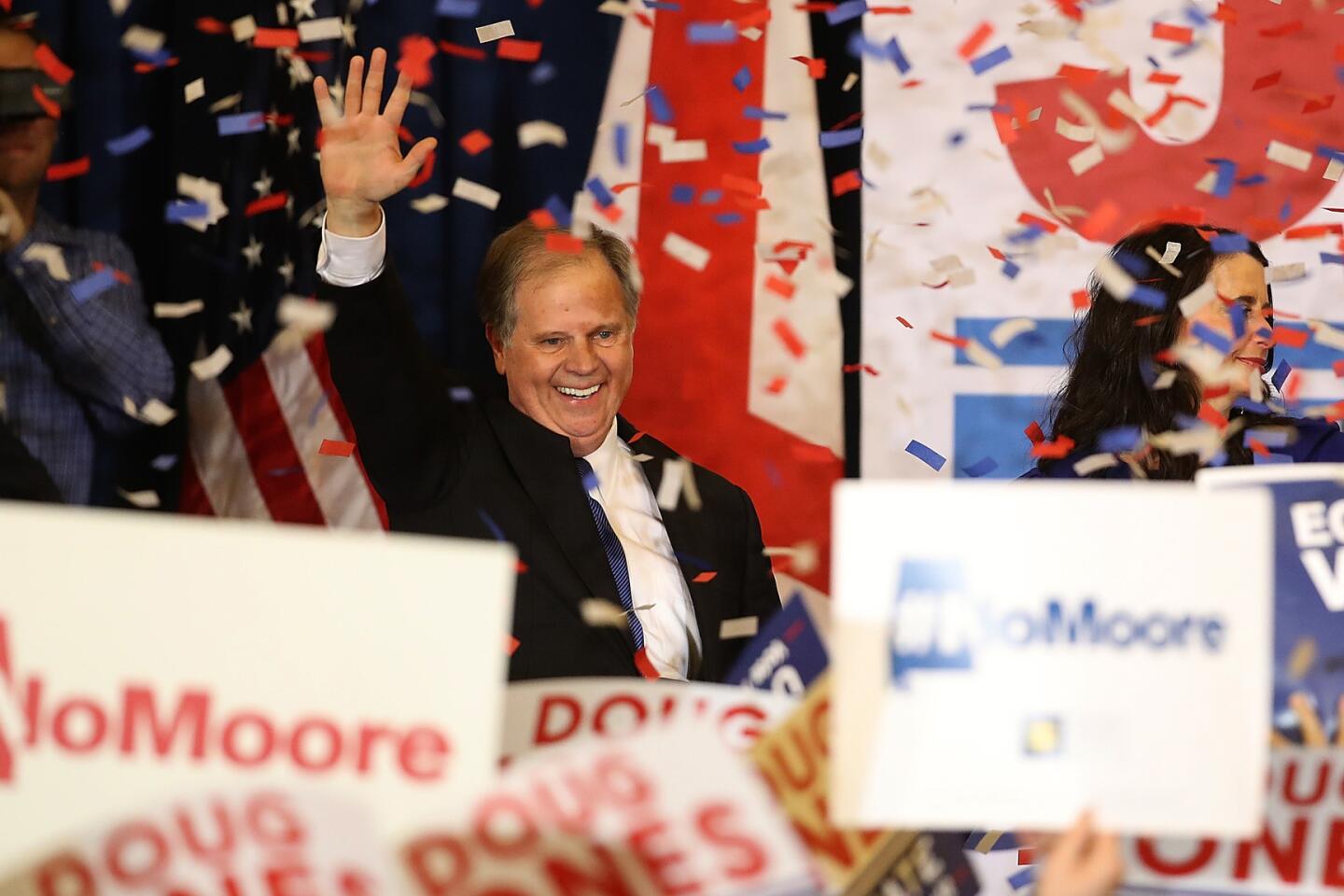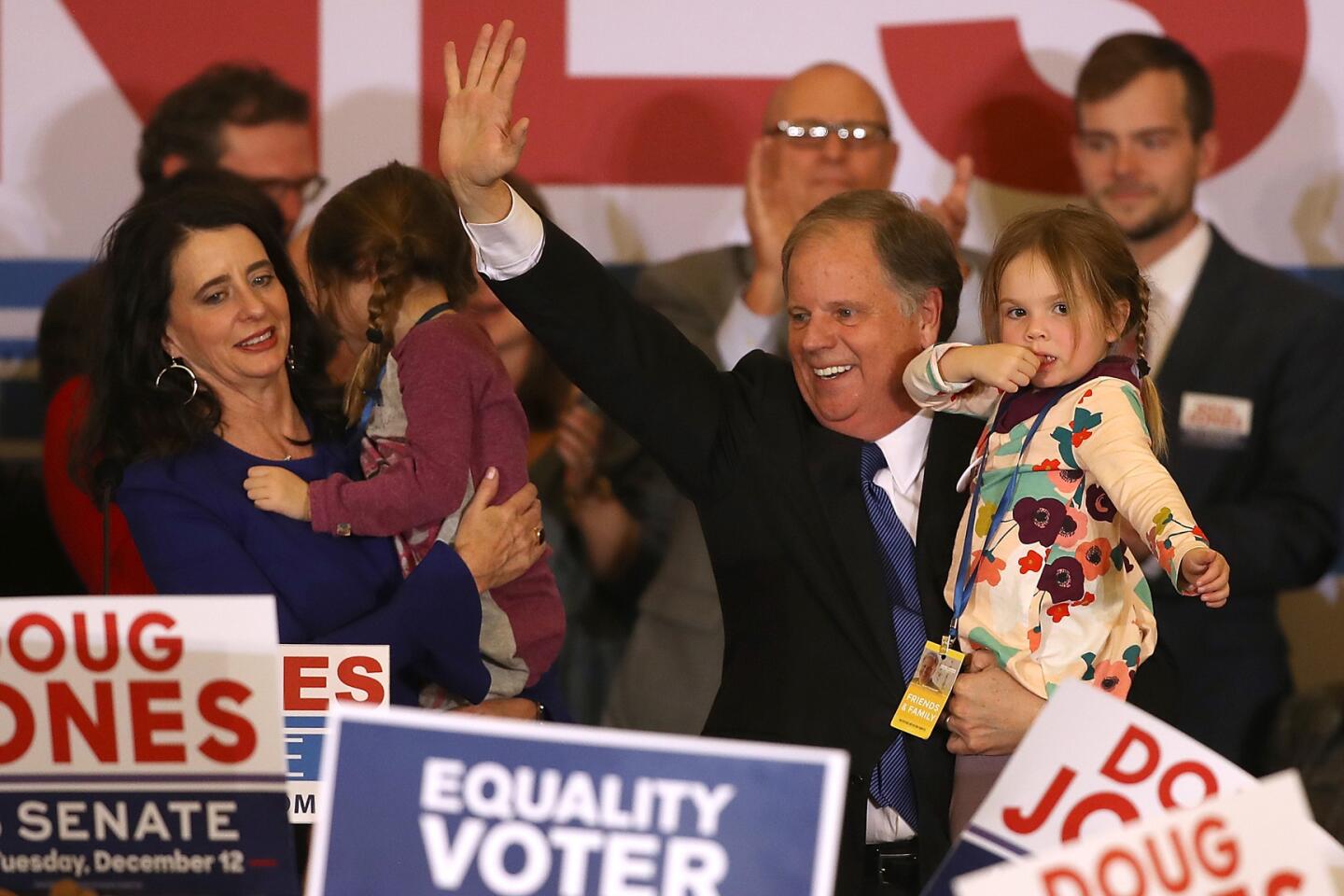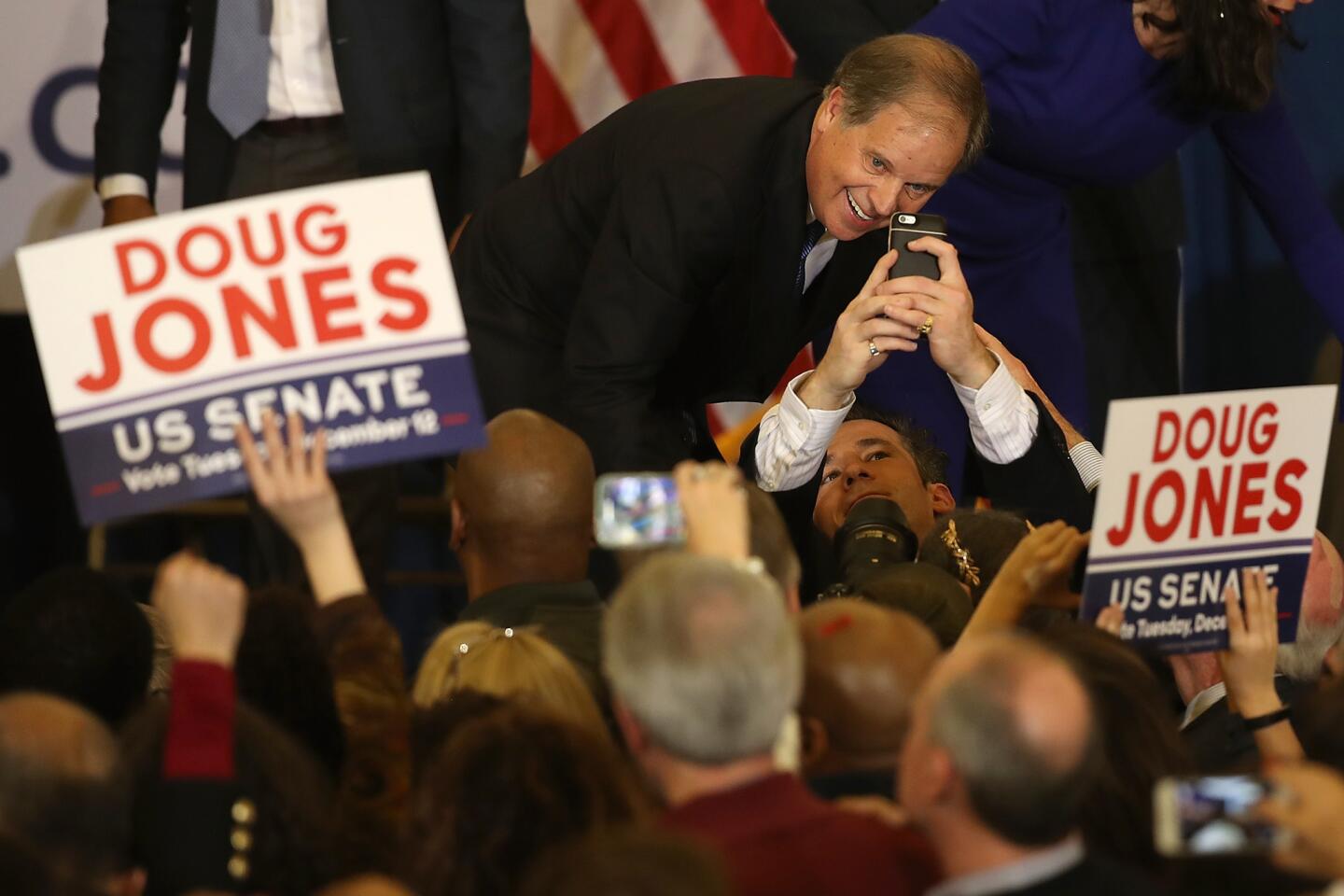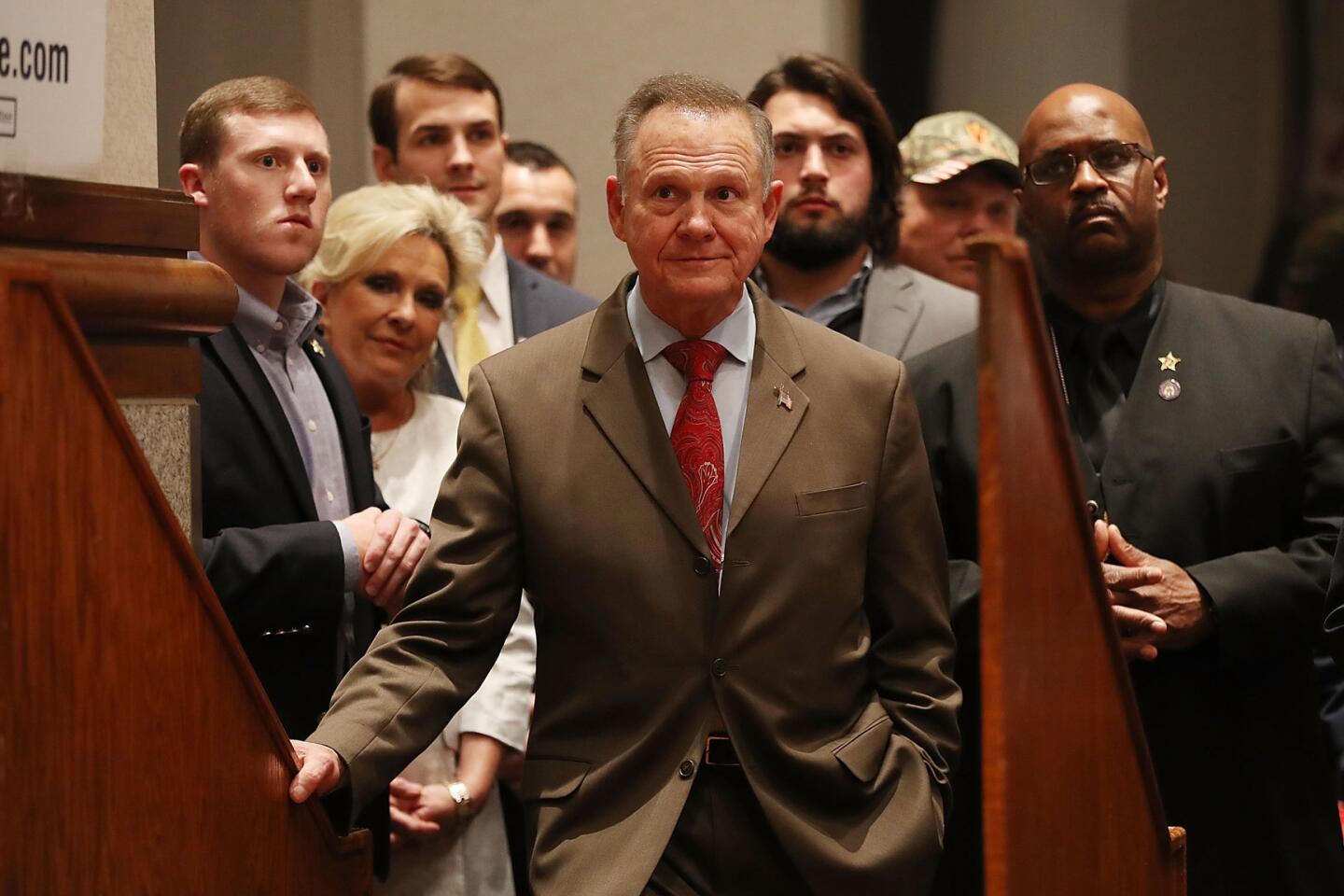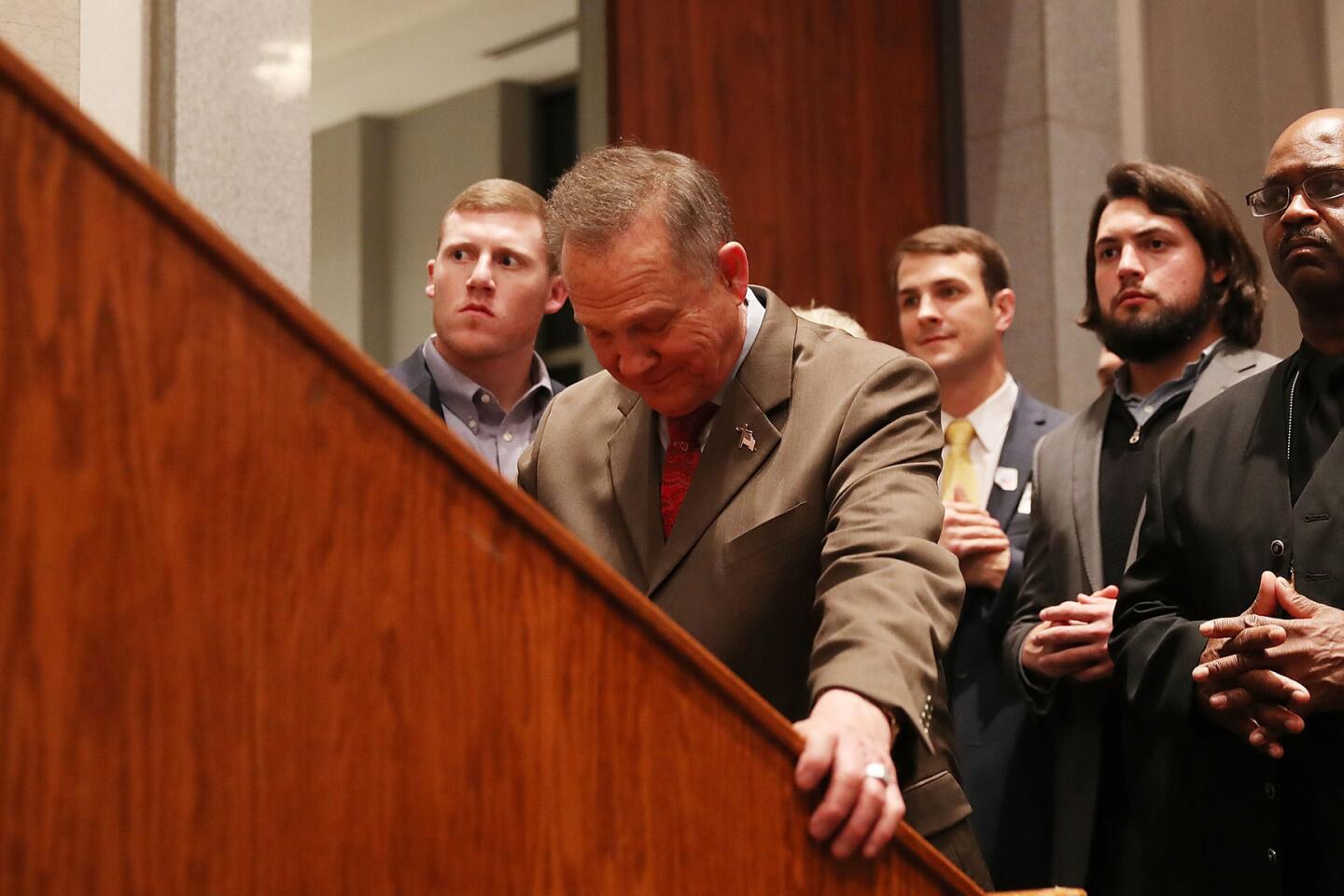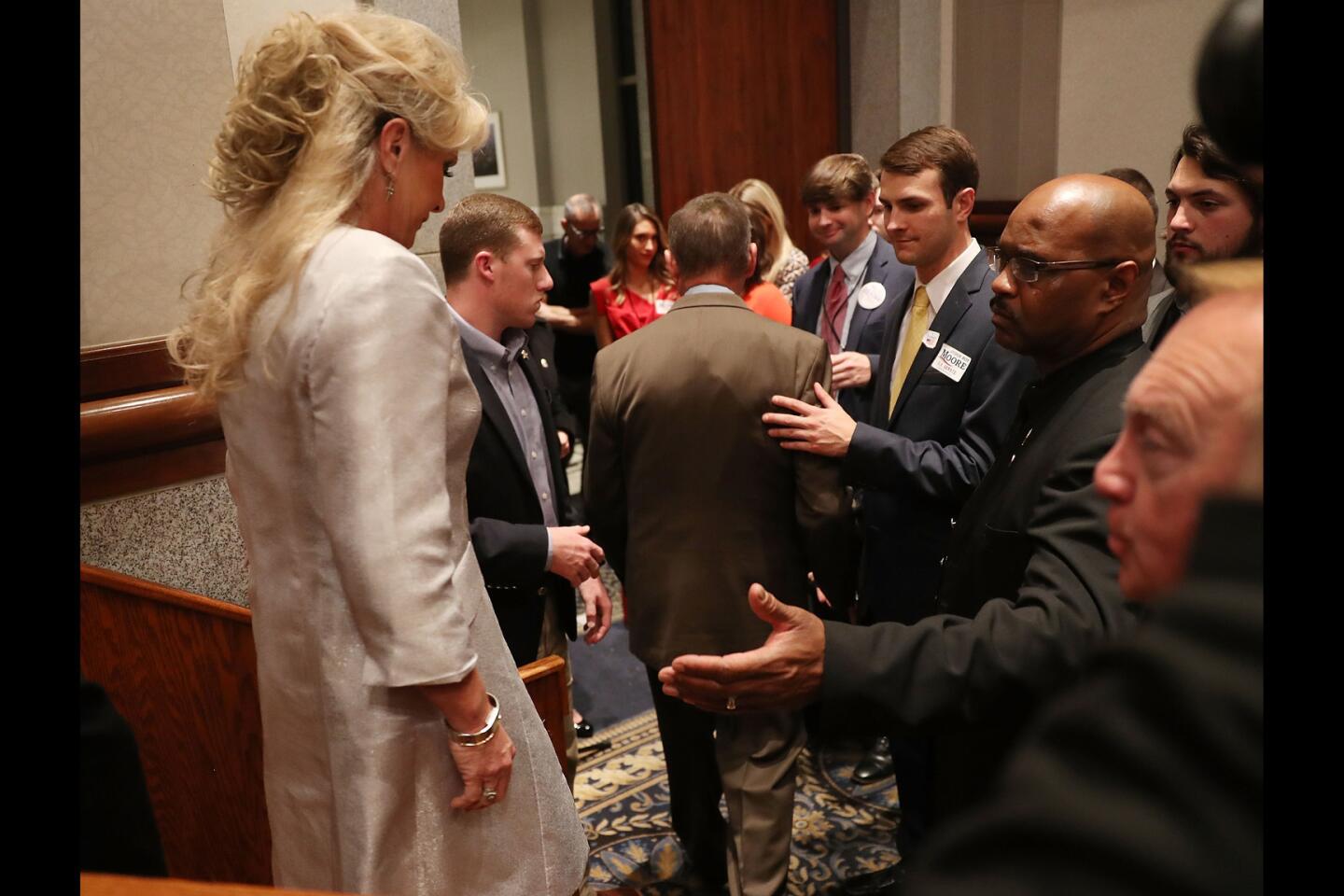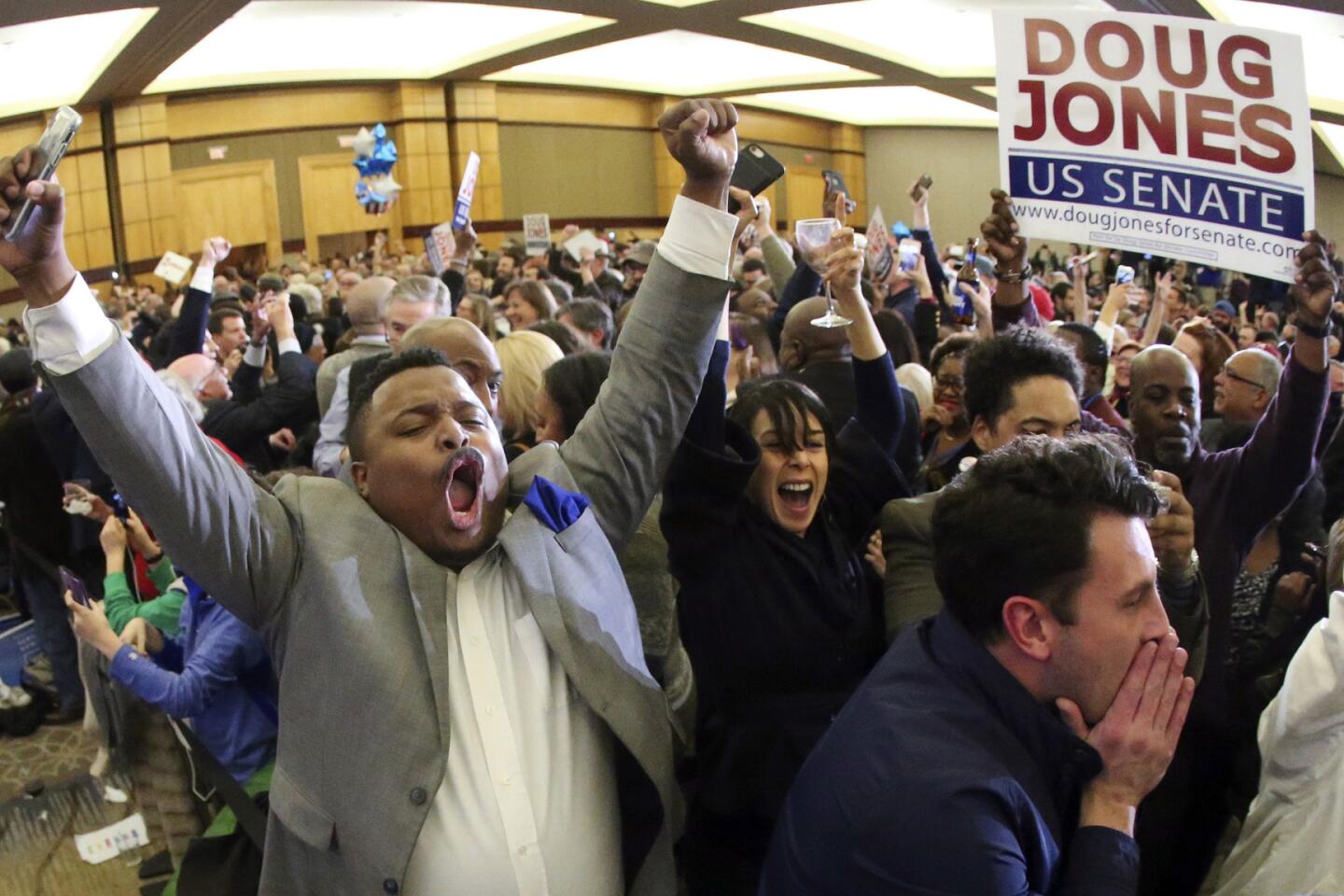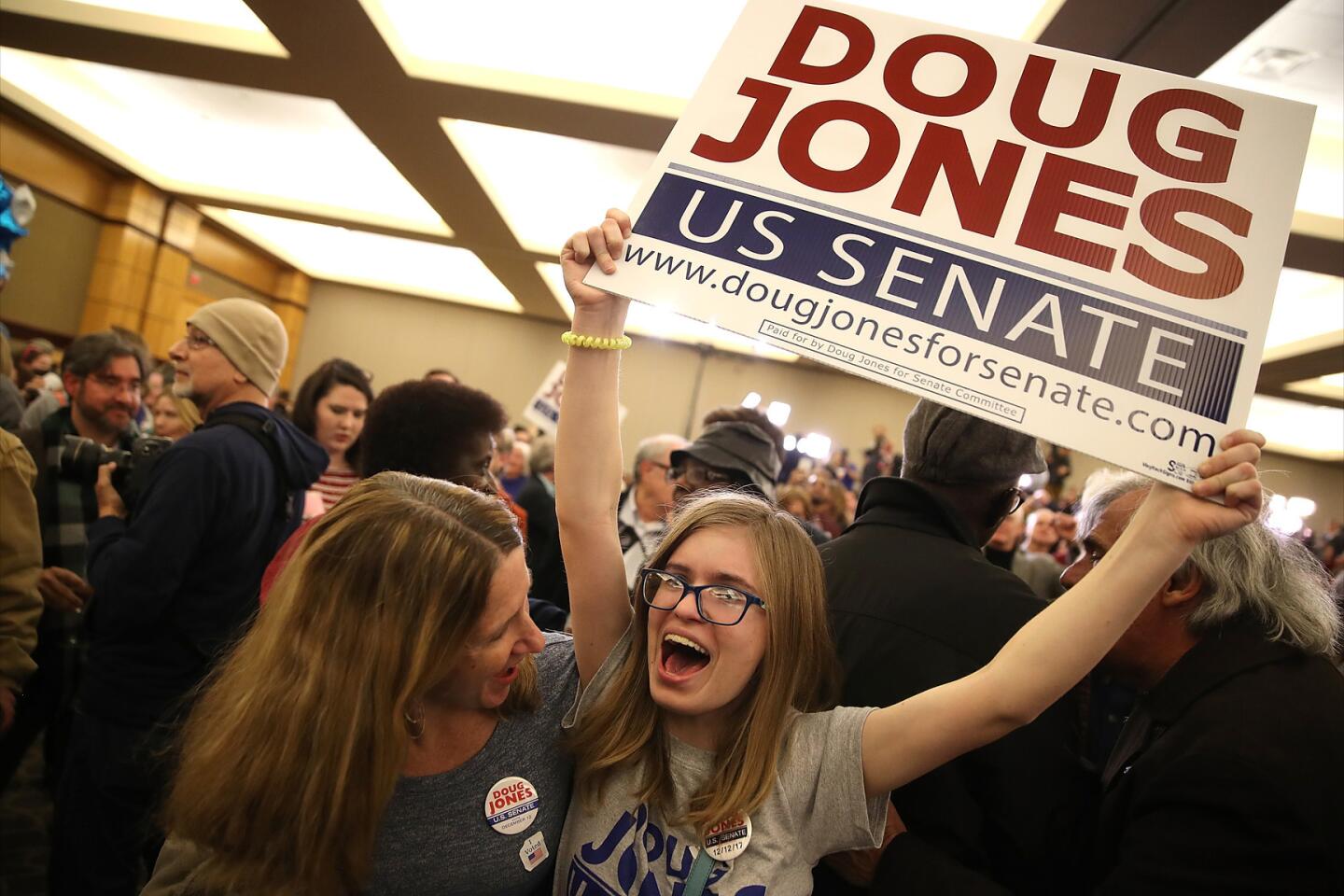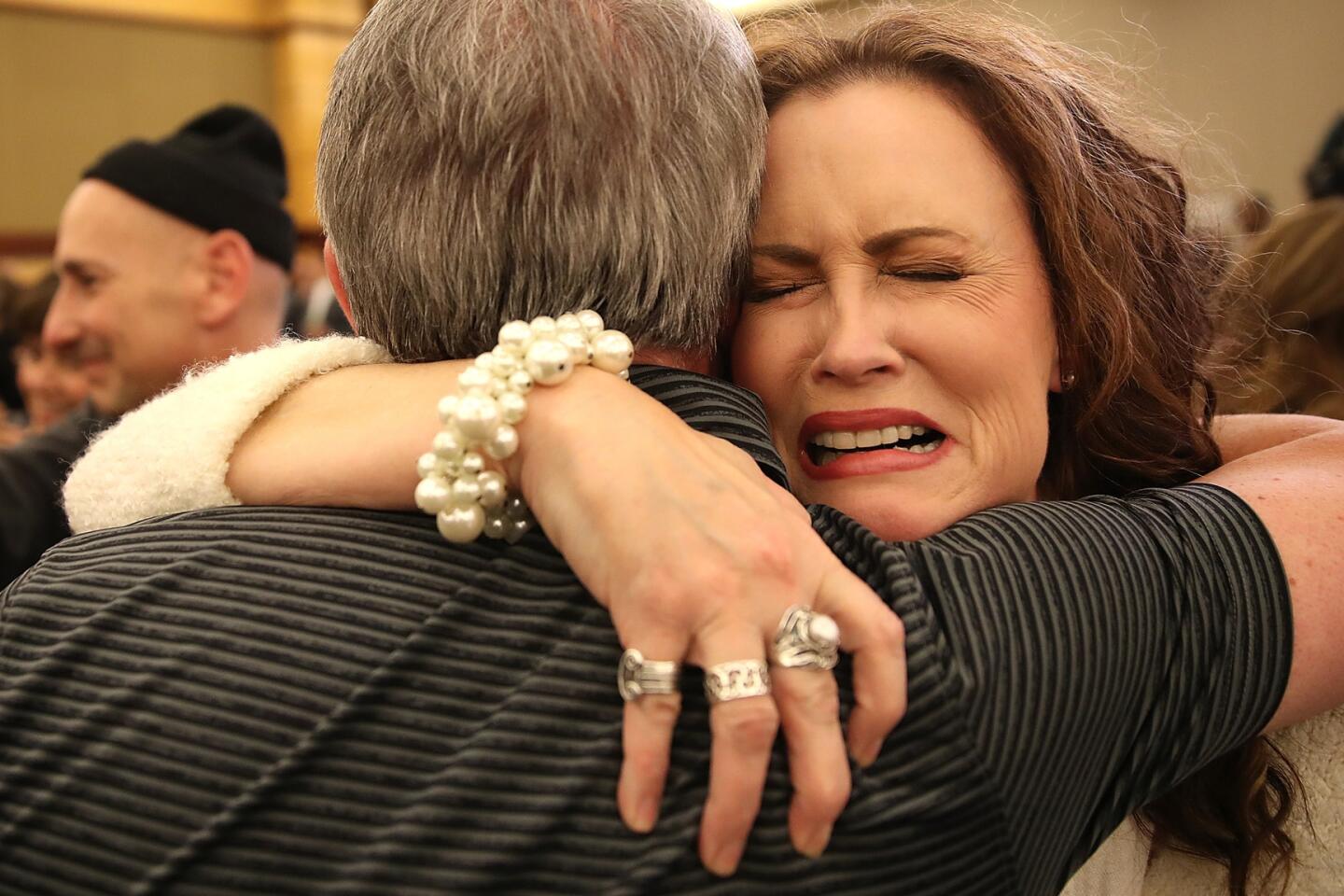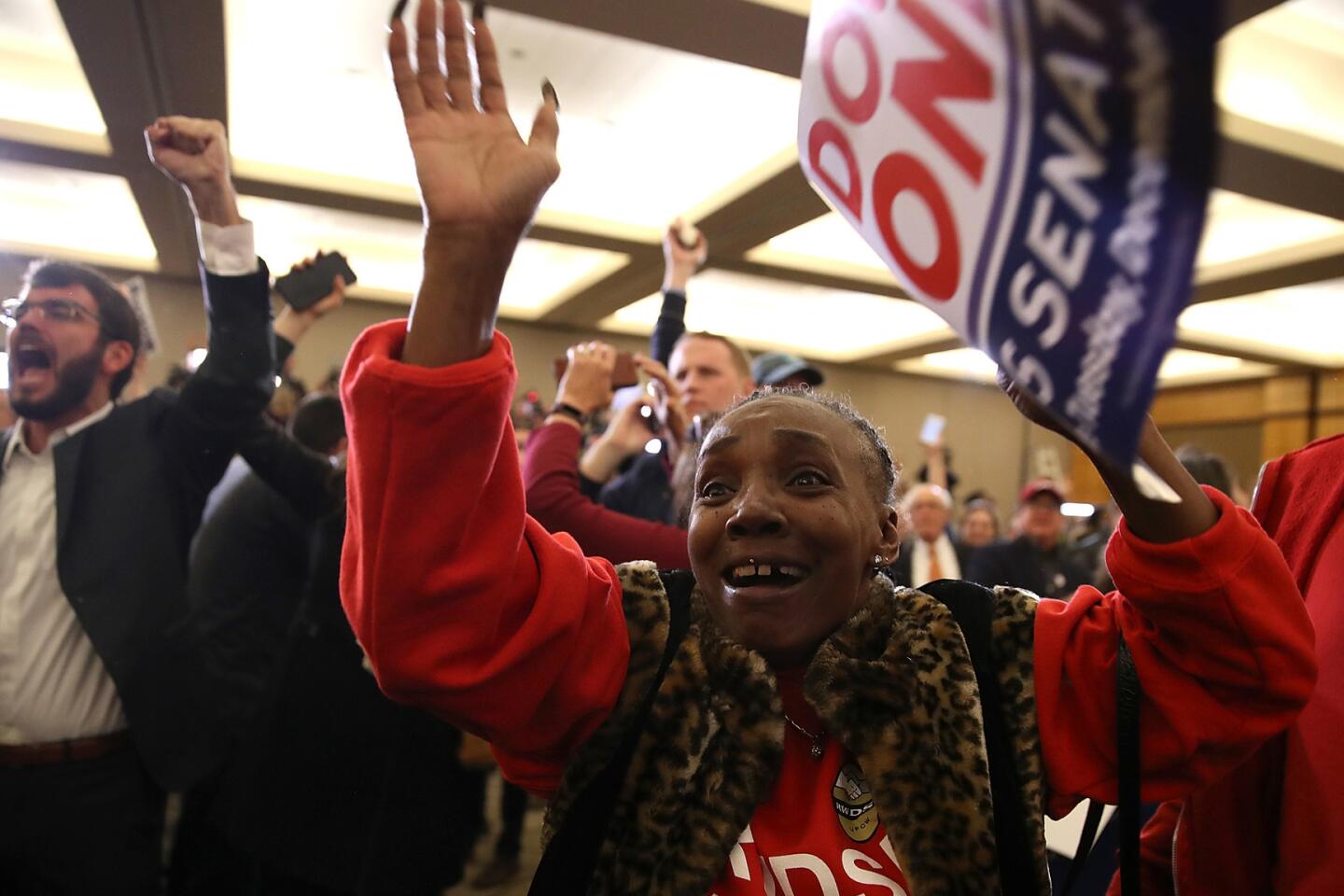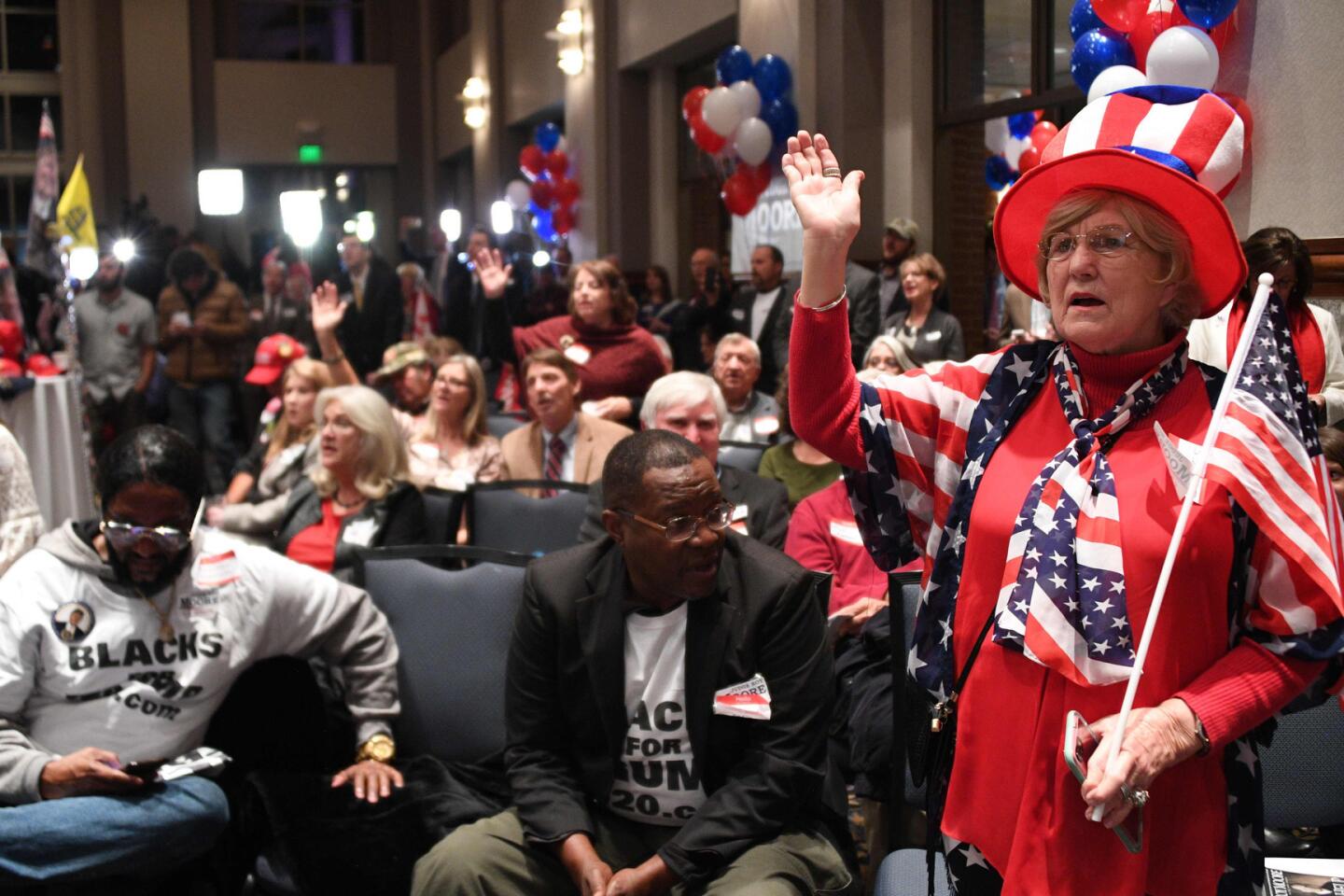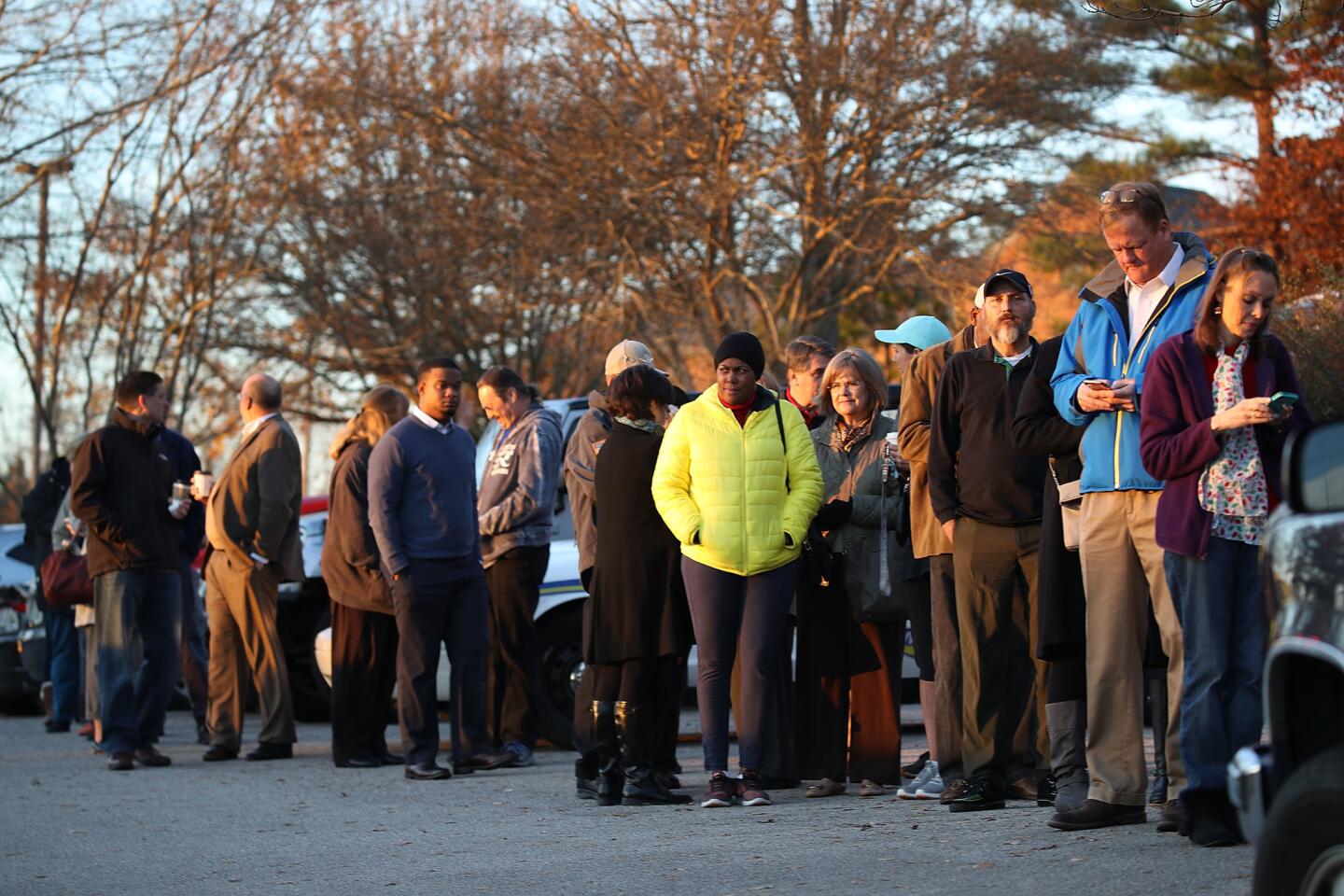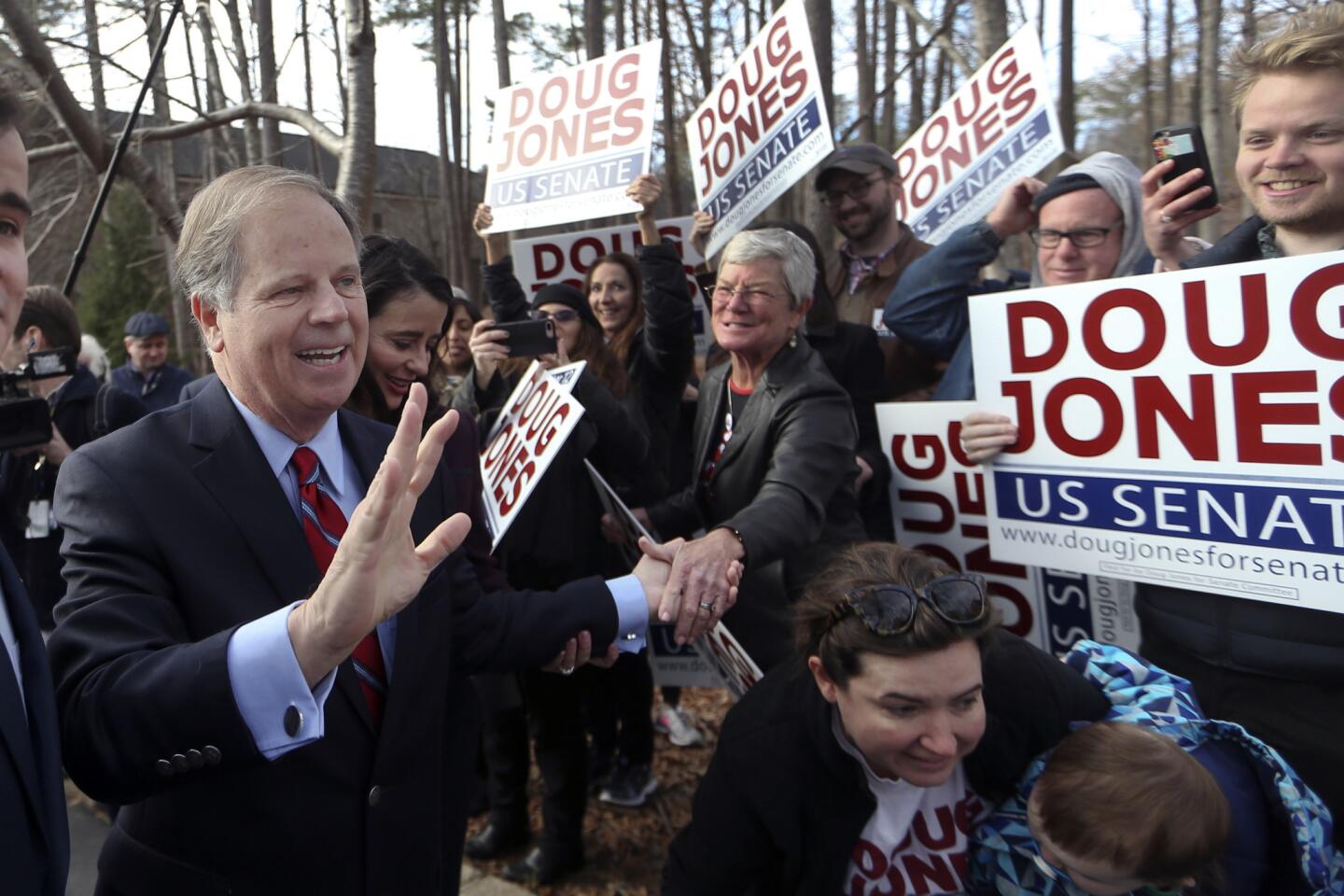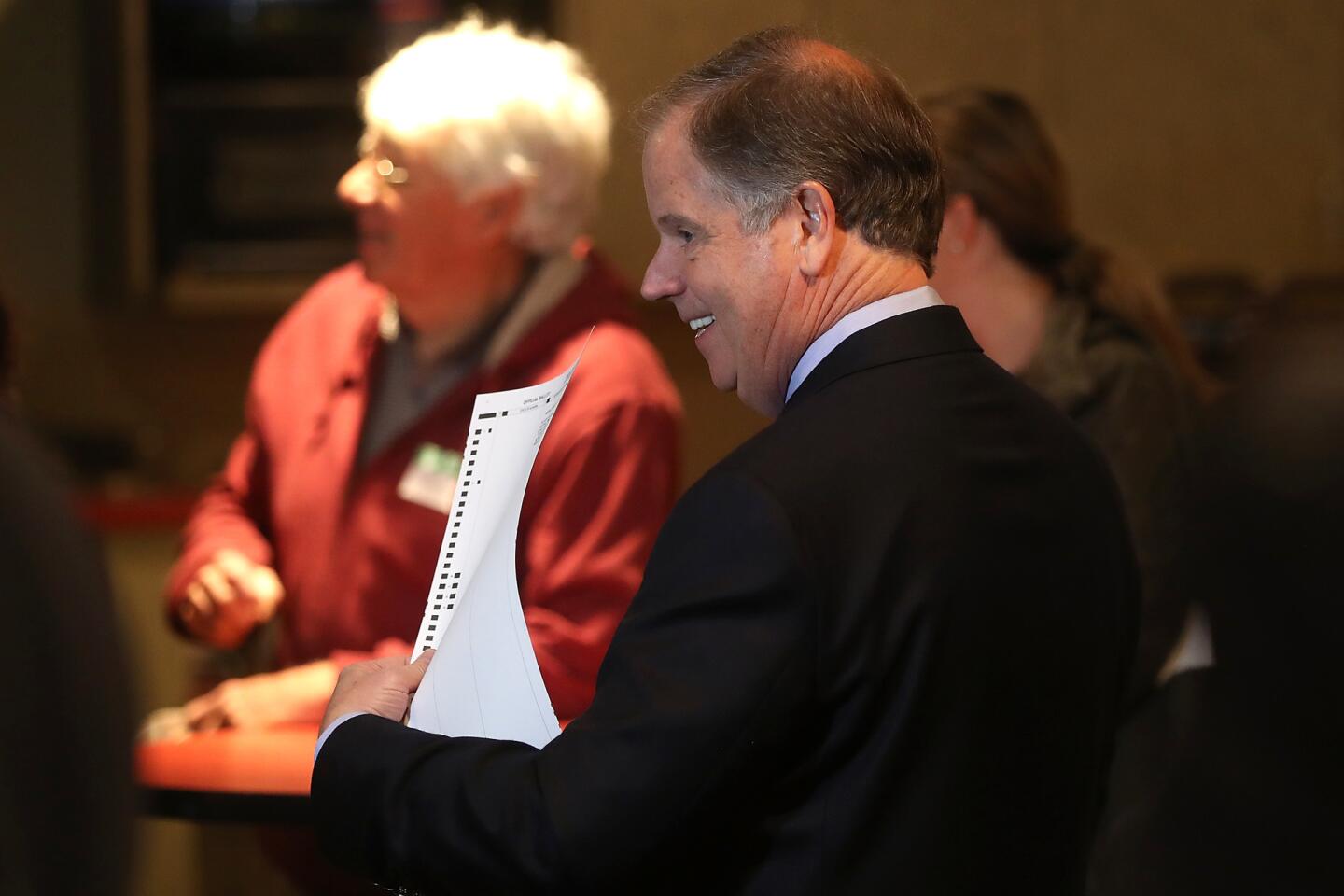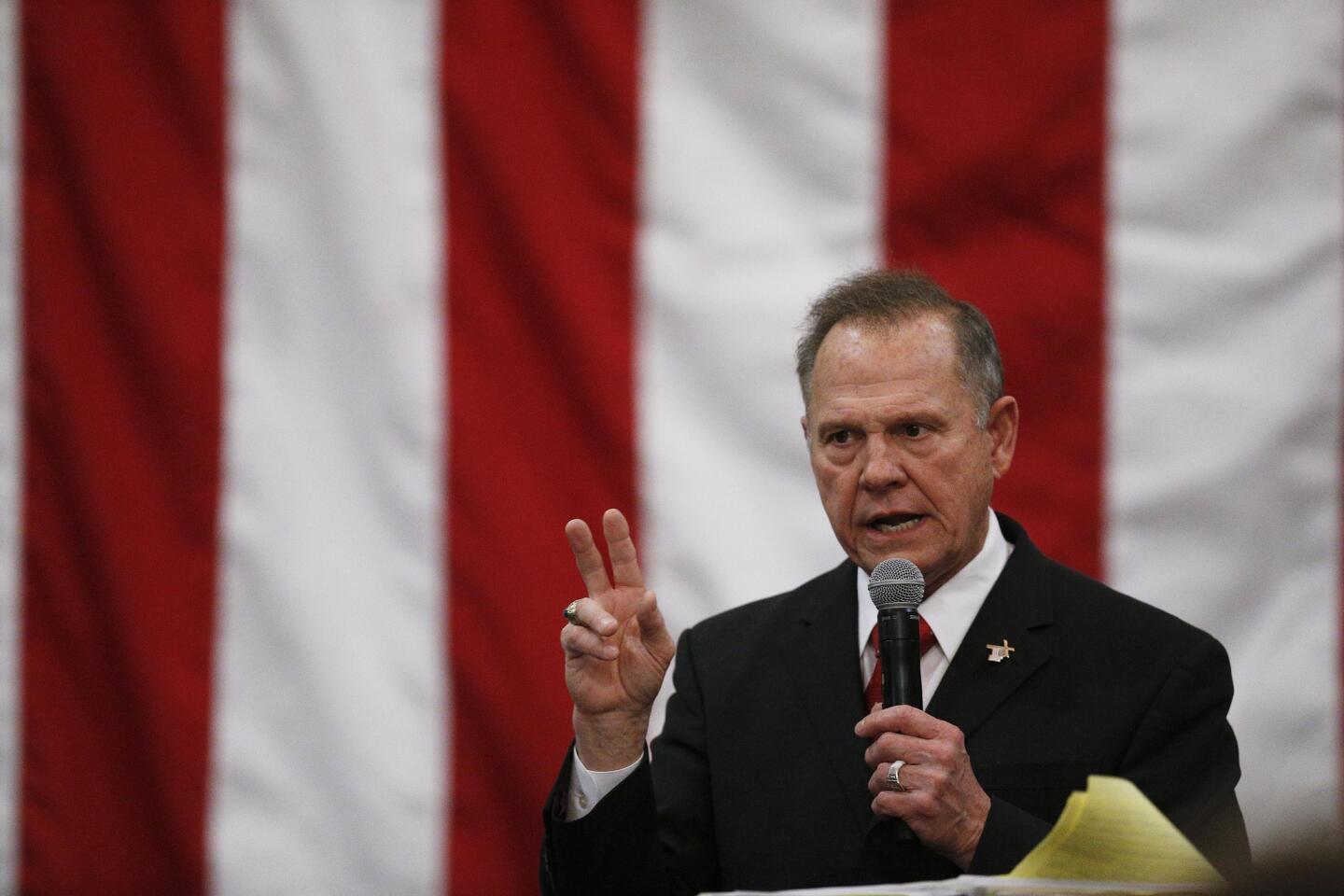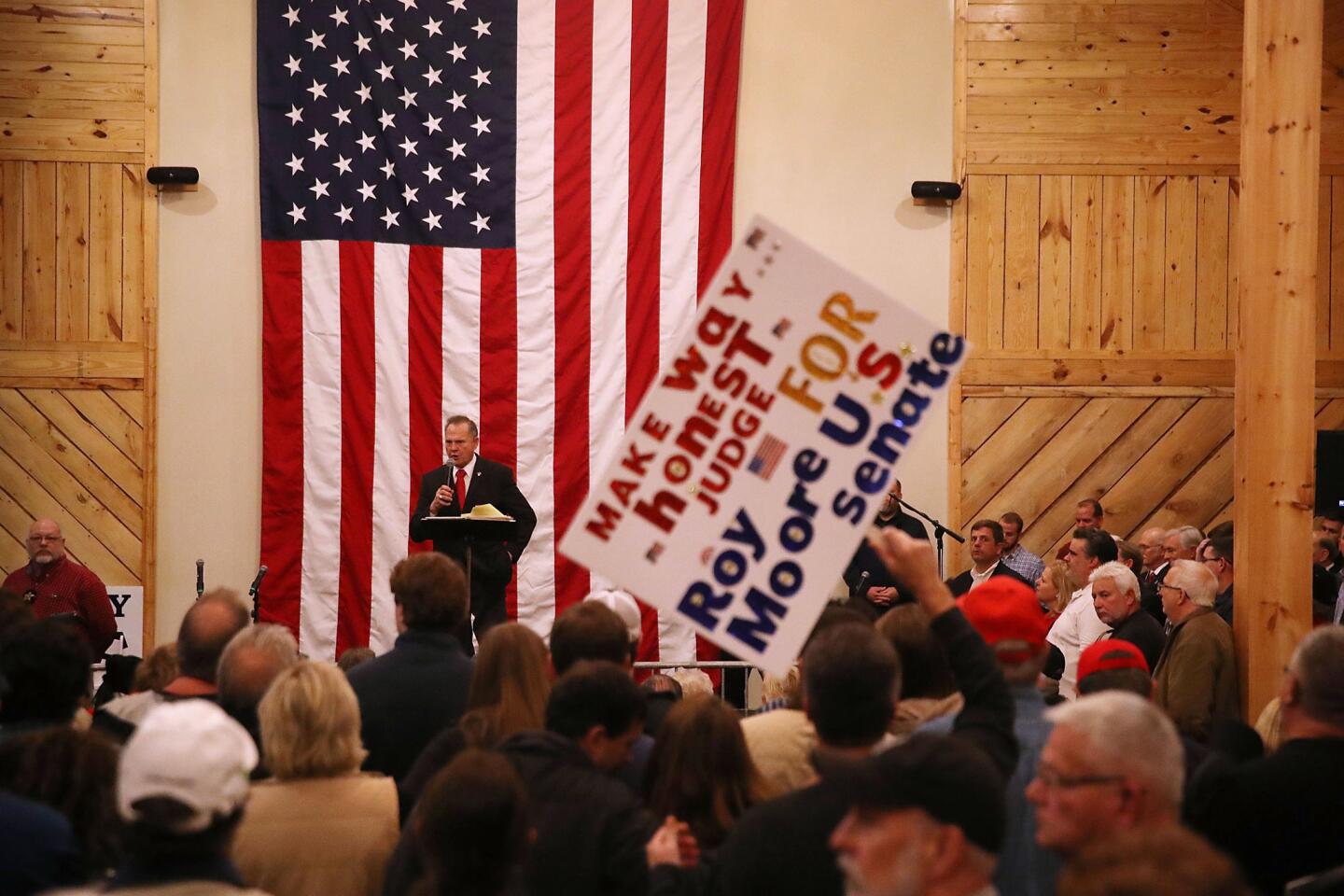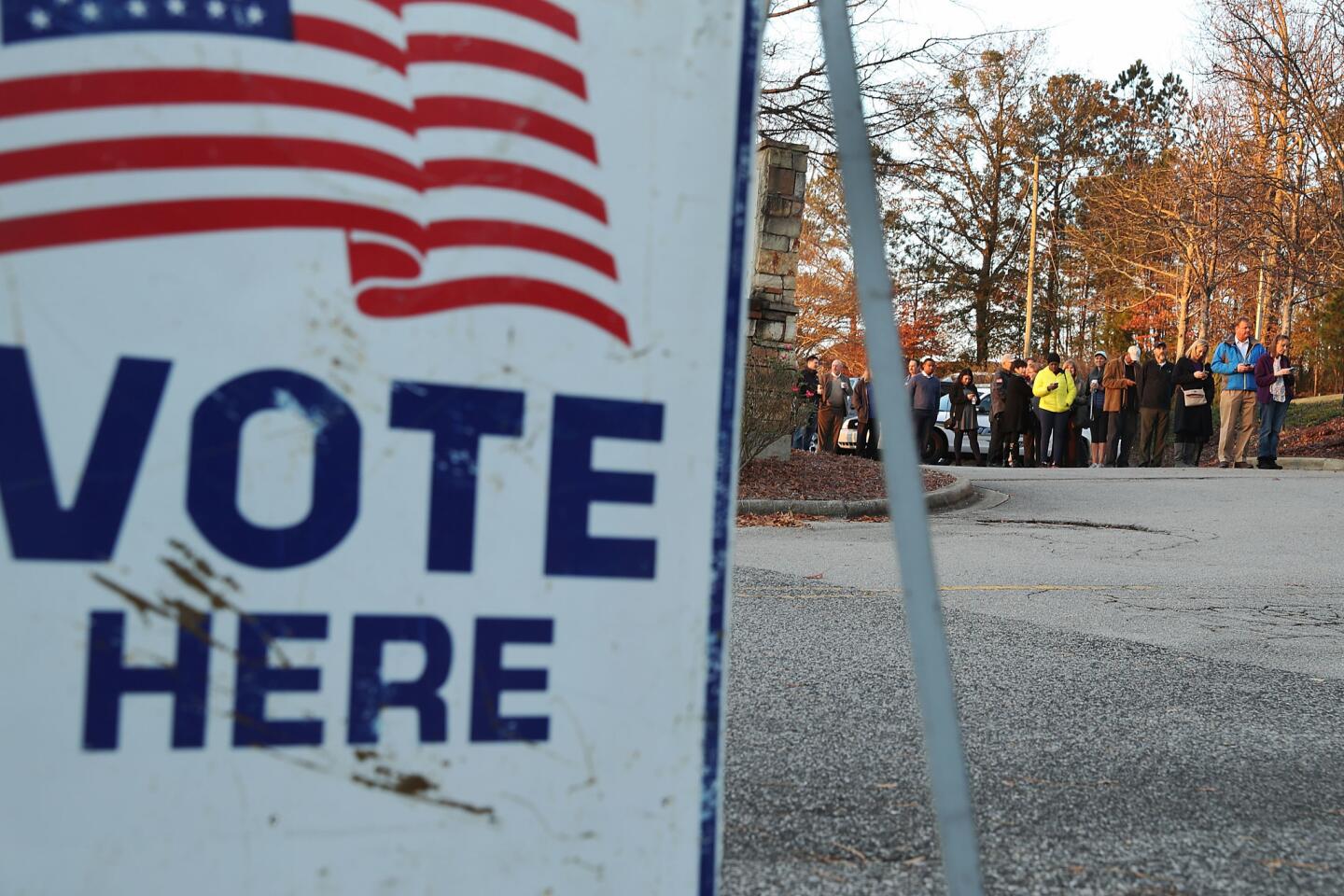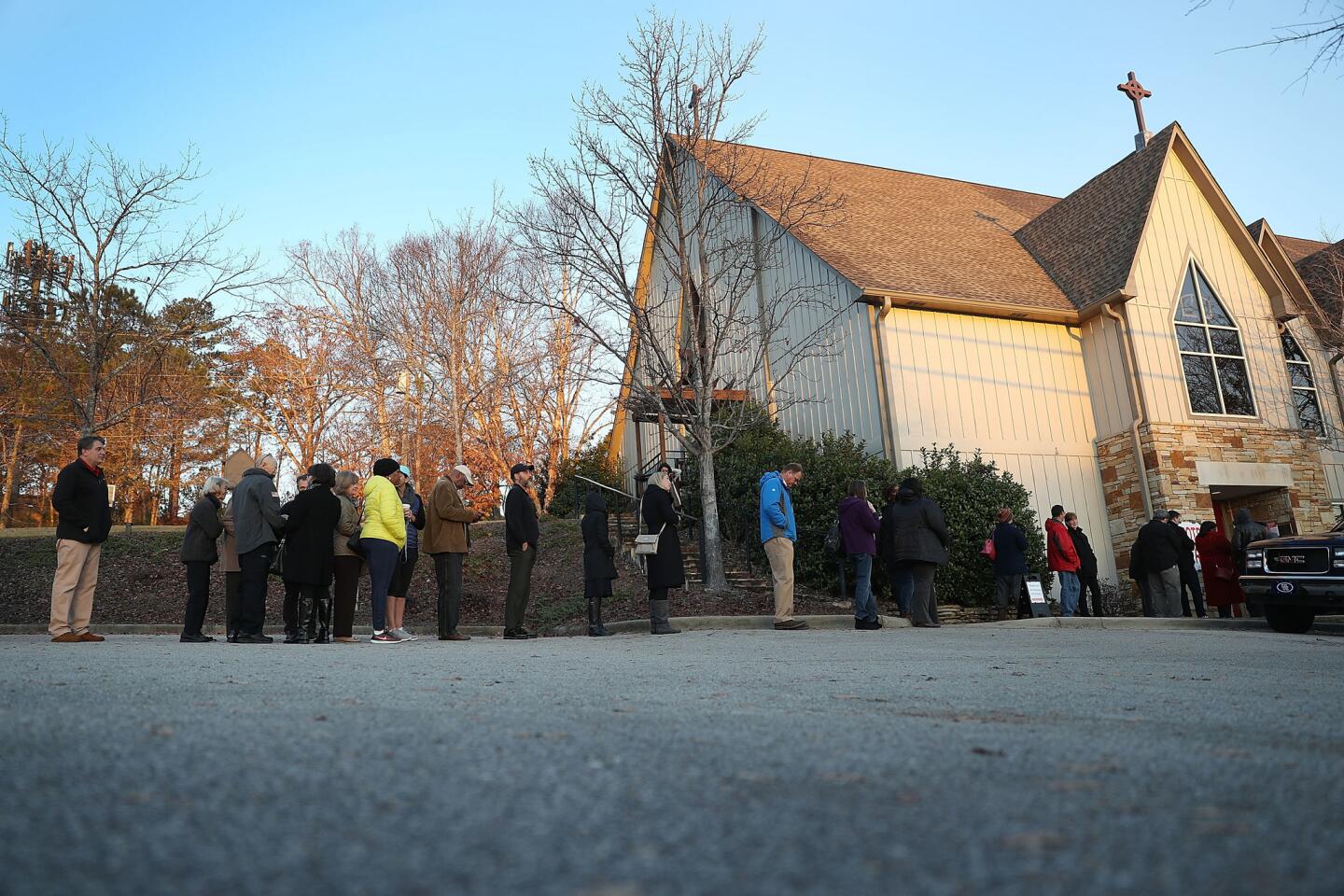Three things to watch in Alabama’s Senate election
It’s a surreal spectacle to see a Democrat running a viable campaign for U.S. Senate from Alabama.
President Trump won more than 62% of the Alabama vote last year, one of his biggest victories in the nation. Both of Alabama’s U.S. senators are Republican, and so are six of its seven House members. Alabama’s governor is Republican. The GOP controls both chambers of the Legislature.
Yet Democrat Doug Jones is locked in a close race with Republican Roy Moore in Tuesday’s contest to fill the Senate seat of Atty. Gen. Jeff Sessions.
Here are three things to watch once the polls close and the vote count begins.
Will evangelical Christians turn out for Moore?
Allegations that Moore sexually abused teenage girls when he was in his 30s threaten to undercut his standing among evangelicals, his strongest base of support.
Moore, who denies the accusations, is certain to win a majority of the evangelical vote. His condemnations of same-sex marriage and transgender bathroom rights were central to his campaign.
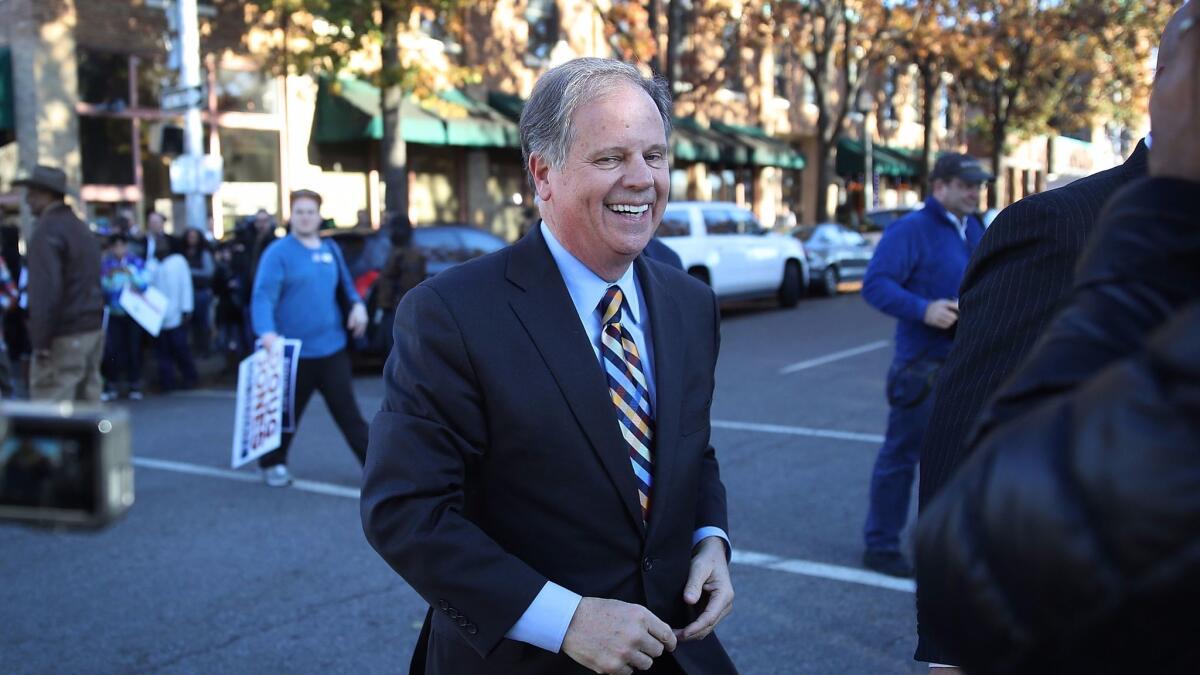
But how many conservative Christians who believe the allegations against Moore will skip the election rather than vote for him?
How many will buck their party and vote for Jones?
How many will write in the name of another candidate? That was the choice made by Alabama’s Republican Sen. Richard C. Shelby, who said the state “deserves better” than Moore.
With sexual harassment scandals dominating national news for weeks, how many conservative women who normally vote Republican will refuse to cast ballots for Moore?
Has Jones convinced African Americans that this election matters to them?
If Jones fails to inspire a strong turnout of African Americans, he is sure to lose.
Black voters overwhelmingly support him, polls show, but it won’t matter if many wind up staying home.
“A lot of people are not going to show up,” said Charles Brooks, general counsel of the Southern Christian Leadership Conference, the civil rights group co-founded by the Rev. Martin Luther King Jr.
Brooks said Jones seemed to focus too much on appealing to upscale Republicans who are uneasy about Moore and too little on mobilizing African Americans.
Jones is a former U.S. attorney best known for prosecuting two Ku Klux Klansmen for the killing of four girls in the 1963 bombing of Birmingham’s 16th Street Baptist Church.
How influential is President Trump?
Popular as he is in Alabama, Trump was stung in the Republican primary when he backed Sen. Luther Strange, a temporary appointee, only to see him get trounced by Moore.
Now, Trump has gone all in for Moore. He got the Republican National Committee to restore campaign funding that it had withdrawn after the sexual misconduct allegations emerged, and he recorded a robocall urging voters to back Moore.
At a rally last week just across the Alabama state line in Pensacola, Fla., Trump questioned the integrity of a woman who says Moore sexually assaulted her when she was 16.
Trump says he needs Moore in the Senate to get his agenda through Congress and can’t afford to have the GOP’s Senate majority narrowed to a one-vote margin over Democrats and independents. How will Alabama voters respond this time?
Twitter: @finneganLAT
ALSO
Alabama Senate race churns into final hours, still too close to predict
Black voters are key to Democratic hopes in Alabama’s Senate race. Will they turn out?
Amid the rush to finish GOP tax bill, a sudden slowdown for second thoughts
Trump links New York bomb attack to immigration debate
More to Read
Get the L.A. Times Politics newsletter
Deeply reported insights into legislation, politics and policy from Sacramento, Washington and beyond. In your inbox three times per week.
You may occasionally receive promotional content from the Los Angeles Times.
